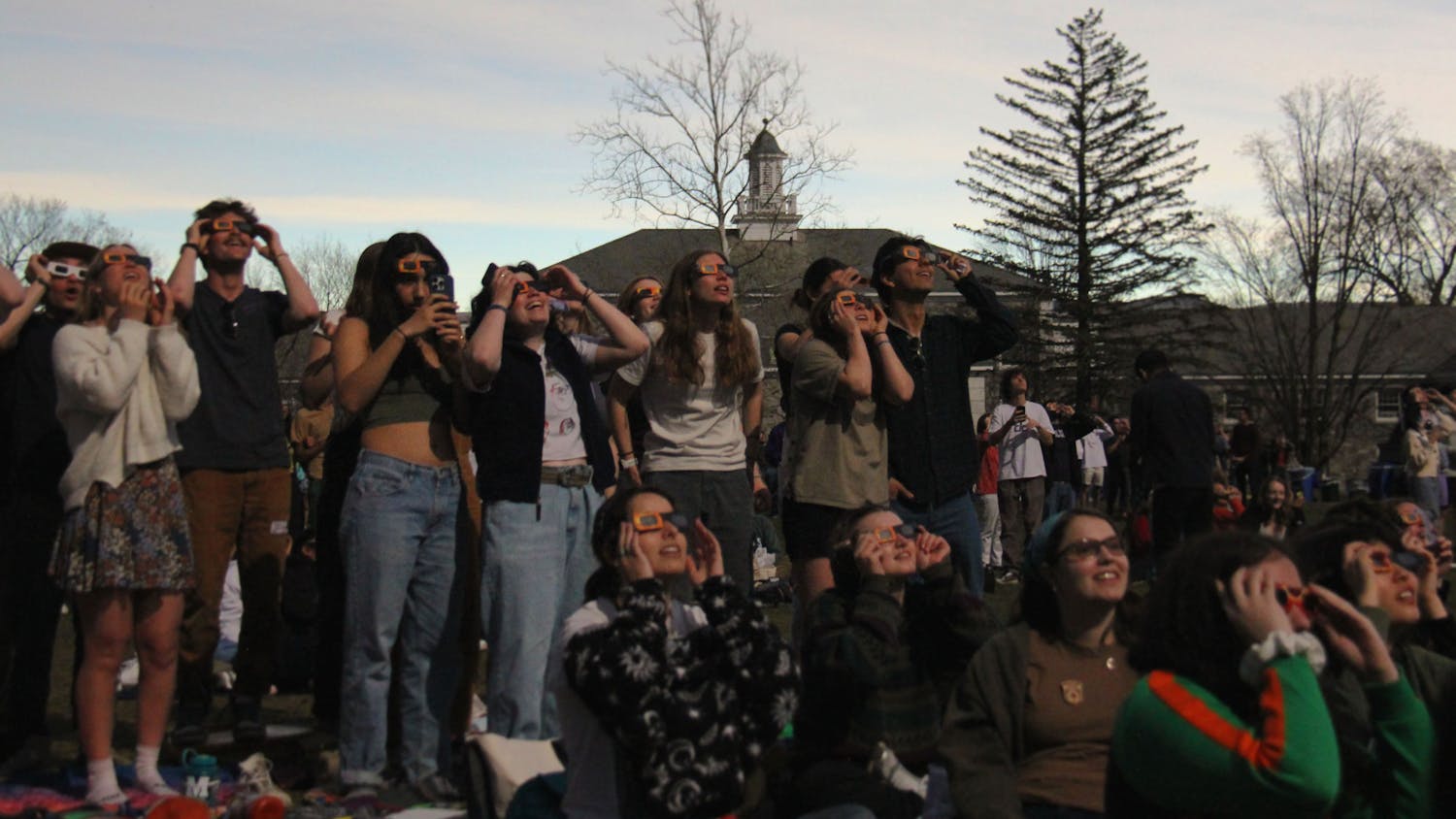Author: Adam Dede
Students and faculty packed into a small meeting room in Old Chapel on Jan. 28 to witness as the trepidatious members of Community Council entered and took their seats to hear a proposal to form a Queer Studies academic interest house. The proposal came from the Middlebury Open Queer Alliance (MOQA) board, and thanks to a passing vote from the council, the house is now expected to be a reality by fall of this year.
The meeting began with a presentation, covering four main topics, from MOQA board members Christine Bachman '09.5, Molli Freeman-Lynde '08 and Ryan Tauriainen '08. Throughout the presentation, the three stressed the duality of the Queer Studies House, which will serve both as a safe space and a center for the advancement of queer studies. They also argued for the academic legitimacy of the proposal, noting senior theses on queer issues and the Queer Studies track within the Women's and Gender Studies program.
According to the MOQA presentation and faculty members in attendance, queer studies is a discipline that questions the binary assumptions upon which contemporary society and its self-image is built.
"It challenges all the naturalized essentialist notions of gender and identity, so it is actually not an identity concept at all," said Associate Professor of German Roman Graf, who spoke on behalf of the MOQA board. "Queer studies challenges identity all the time, and at the same time it acknowledges that you have an identity and that you identify as something, but you have to question it all the time."
Presenters also made it clear that queer studies is not the same thing as women's and gender studies, and that it is not limited to gay and lesbian studies.
"What's different about queer studies specifically is that women's and gender studies is about men and women and then queer studies takes that and runs with it," said Bachman. "Queer studies really looks at how binaries are constructed and sort of destabilizes the very organizing principles of women's studies and gender studies."
The Queer Studies House will play host to lectures, screenings and workshops designed to draw in as many members of the Campus community as possible. The proposed programming outline also includes workshops for both fall and February first year orientation. Supporters of the proposal stated that they hope to base these workshops on the deliberative dialogues already held as part of first-year orientation.
The house will also provide a venue for senior thesis presentations. According to the MOQA board there are many senior theses written each year on queer theory, but because there is no queer studies major these theses do not get as much recognition as theses in other areas of study.
"I know a lot of other departments have theses presentations so we would love to see this happen at the Queer Studies House," said Freeman-Lynde.
Having already faced stiff opposition to residential status from many in the Student Government Association (SGA) Senate, the MOQA board members were aware that their arguments for residency would be the deciding factor for the proposal.
"We are really trying to go step by step and follow the rules to get an academic interest house," said Freeman-Lynde.
Supporters of the Queer Studies House hope that having a central location dedicated to queer studies will help to inspire more activity and dialogue around queer issues.
"The idea is that when people live together and there is interest and energy around their shared interest there is going to be more support dedicated to creating programming and outreach to the community," said Bachman, who went on to stress that beyond its academic functions, the house will serve as the only truly gender neutral space on campus.
Residency will be given to students based on their academic interest as judged by a diverse panel of both students and faculty members.
"Because [residency panelists] come from different facets of the community it's not going to be a group of five close friends," said Tauriainen. "Most likely it's going to be five very diverse people."
They also stressed that gender and sexual identity will not be factors in deciding residency.
Research compiled by Tauriainen also gave the Community Council insight into the queer studies options - both residential and nonresidential - at other colleges.
Despite the presentation and Tauriainen's research, SGA President Max Nardini '08 still had deep misgivings about the residential aspect of the house.
"I've come up against flak for being both a homosexual and someone who is against the residential nature of this proposal," said Nardini. "One term that got thrown in my direction was 'self-hating gay,' and my fear is that the sort of 'with us or against us' mentality that exists in some facets of the gay community would negatively impact the residential aspect of this house. At the end of the day, are we going to create a division between queers and queer-friendly individuals who either live in the house or support its residential aspect and the queers and queer-friendly individuals who do not? To talk about one gay 'community' on this campus is highly inaccurate."
Council representative Peyton Coles '08, who joined Nardini as one of four votes against the proposal, shared his view that although a space for queer studies is a great idea, its residential aspect could be an extremely divisive issue on campus.
The proposal eventually passed nine to four with one abstention.
Queer Studies House okayed
Comments



